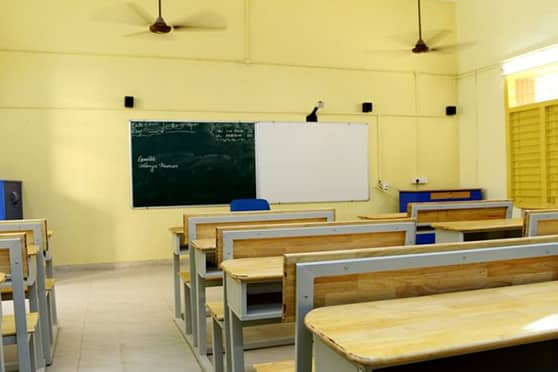Returning to school may not be a happy experience for everyone, especially for the students who are academically weaker and cannot answer in class, said a section of parents and teachers.
Online classes provided these children the protection of anonymity. The fear of being ‘picked out’ by the teacher in front of the class and not being able to answer has resurfaced.
A large section of children are shy, nervous or even evasive in class, said teachers. Teachers have to be extra sensitive towards these children, said counsellors and mental health professionals.
“There are students who have not spoken in class in the last two years and they must be going through terrible stress to face a classroom in-person,” said Nupur Ghosh, vice principal, Mahadevi Birla World Academy.
Ghosh said it is the duty of teachers to ask questions but the embarrassment of not being able to answer is bothering many students.
Teachers will have to be conscious of a child’s weakness and hand hold the child, said the head of a school.
“There are children who have grown up with a feeling that they would be targeted... It is for the school system to make the child comfortable,” said Terence Ireland, principal, St James’ School.
A Class III student told her mother that if she cannot do an addition sum in class, she would be punished.
A Class VIII student said if the teacher asked her something and she was unable to answer, her friends would make fun of her.
“The bright students manage but it is the weaker ones who get bullied. If they were towards the bottom of the class before the pandemic, they would have fallen behind further,” said Hilda Peacock, director, Gems Akademia International School.
Peacock said that the anonymity of a virtual screen has been taken away with in-person classes resuming and the challenge now is for the students to match the standards of the class they are in.
For children in primary or middle school, teachers have more time to help them catch up. But what about a student who is in Class XI and has the board exam next year?
Most teachers are also unaware of where a student stands in terms of learning after two years. The first thing is to identify the level of each child, said Jessica Gomes Surana, principal, Loreto Convent Entally.
Psychotherapists and counsellors said that teachers would have to help the children overcome their anxiety.
The presence of a favourite teacher helps a student. In-person classes give teachers the opportunity to have conversations with the children and create spaces which would make them comfortable, said psychotherapist Farishta Dastur Mukerji.
The teacher has to identify what the child is good at, which is not only academic, and encourage them, feel many parents.
